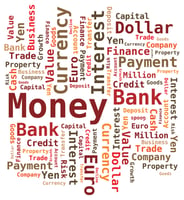I am not going to venture into any moral or philosophical debates about what value means. Concepts...
Concepts of Value in Business Valuations
Value has different meanings to different people depending upon their opinions, or circumstances in which it applies.
The value of a luxury motor car will have different values to people depending on their income level, perceptions of the vehicle, and what benefits it will deliver for them.
 Where value is equal to or greater than the price, a sale will likely occur.
Where value is equal to or greater than the price, a sale will likely occur.
In business valuations, the value of a business or company will depend upon the concept of value, which have been defined to enable common comparison and analysis between the different concepts of value.
The types of value are:
- Book value
- Depreciated value
- Going concern value
- Liquidation or break up value
- Fire sale value
- Intrinsic value
- Fair value
- Fair market value
- Replacement value
- Special, investment or strategic value.
Book Value
Book value is the amount at which an asset or liability is recorded on the entities books of accounts.
Depreciated Value
Depreciated value or written down value is the net amount after deducting depreciation or amortisation.
Going Concern Value
Going concern value is the value of an asset to the enterprise as a going concern or the value of an asset ‘in use’. Most business valuations will be prepared on the basis of a going concern.
Liquidation Value
Upon winding up, the assets of a business are realised in a shorter timeframe which results in the assets on achieving their full value. It would generally equal the amount that could be achieved at public auction.
Fire Sale Value
Fire sale value is the price at which an asset could be sold in the shortest possible time regardless of how low a price is obtained.
Intrinsic Value
Intrinsic value is a concept based on the theoretical ‘true worth’ of an asset and is determined by its past record and potential earning power. The intrinsic value of an asset may be much higher than the market value as the market may under value the asset due to doubts about the ability of the entity to achieve its intrinsic value.
Fair Market Value and Market Value
The concepts of fair market value and market value have a common thread in terms of their definition and in many situations used interchangeably.
Fair Market Value is:
“The price that would be negotiated in an open and unrestricted market between a knowledgeable, willing but not anxious buyer and a knowledgeable, willing but not anxious seller acting at arm’s length”.
The definition assumes a hypothetical buyer and seller, it does not assume an individual buyer or seller with their own specific interests or motivations.
Knowledgeable assumes that they understand the business and its particular issues and that they understand the economic rationale behind the business valuation process being an investment reflective of risk and return.
Anxious assumes that the buyer and seller are not subject to external pressures and the transaction is based on the merits of the investment itself.
An open and unrestricted market assumes that there is perfect competition however in some cases there may be regulatory restrictions that overlay the transaction that need to be taken into account such as foreign investment guidelines, competition requirements and consumer protection.
Fair Value
Fair value is defined as:
“The estimated price for the transfer of an asset between knowledgeable and willing parties that reflects the interests of those parties”.
The important differences between fair value and fair market value are that in fair value:
- The identity of seller and purchaser are relevant as opposed to hypothetical
- The parties may not be at arm’s length
- Certain synergies may be included that are known for both parties.
A common application of fair value is in cases involving the oppression of minority interests where the application of the definition of fair value is to ignore any discount for minority interests in the valuation process.
Special Investment or Specific Value
Specific value assumes that there are specific benefits that will accrue or be expected to accrue to the investment.
Examples would include synergies that could arise following the merger of customer’s products or administrative costs.
Special value would also apply for transactions where the special skills and experience of the employees are obtained or to prevent their competition obtaining the technology.
Value to the Owner
Value to the Owner is applied in Family Law and allows an extension to fair market value particularly where there is no market for the investment, a minority interest in a closely held family company or an ‘interest’ in a discretionary trust.
More discussion of value to the owner can be found here.


